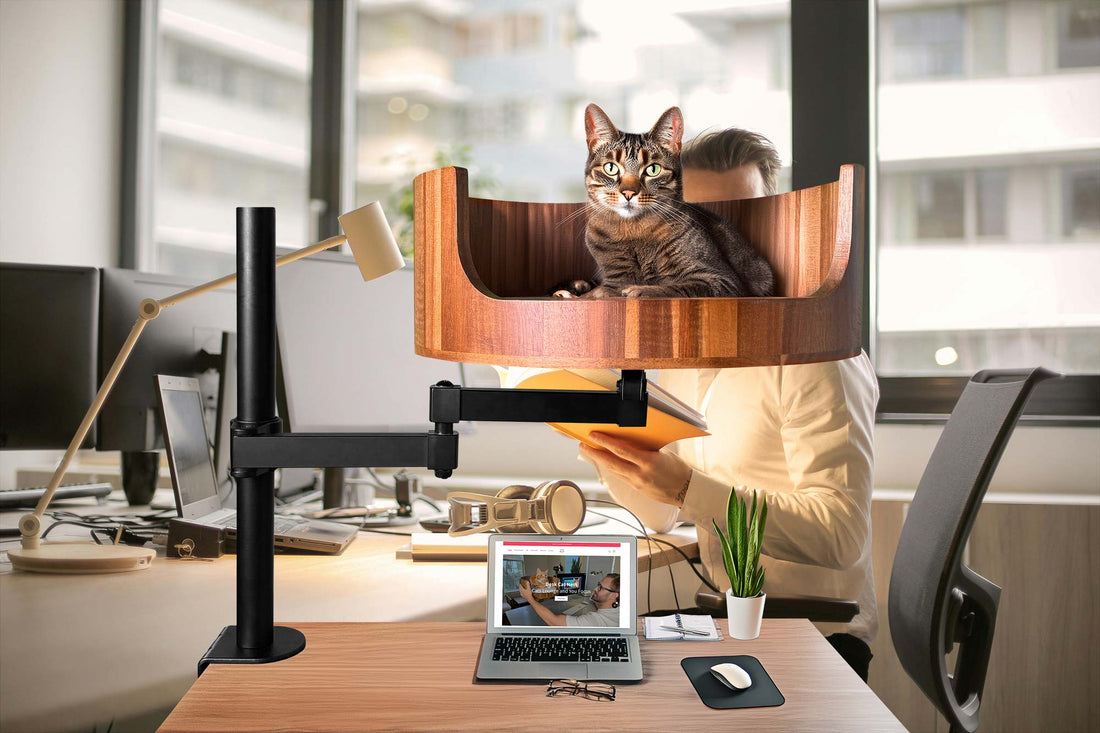
My Cat Is Constipated: Tips for Relief and Care
Share
Is your beloved feline companion feeling a bit backed up? Constipation in cats can be a frustrating and uncomfortable issue for both pets and their owners. If you're wondering how to help your cat find relief from constipation, look no further. In this article, we will explore various tips and strategies to care for a constipated cat, from dietary changes to home remedies and when it may be time to seek professional help from a veterinarian.
Constipation can be a common problem for cats of all ages, and there are several potential causes for this issue. Whether it's due to dehydration, lack of fiber in their diet, hairballs, or an underlying health condition, it's important to address constipation promptly to prevent further discomfort for your furry friend. By understanding the signs of constipation in cats and learning how to provide relief through simple lifestyle changes and gentle interventions, you can help your cat feel more comfortable and improve their overall well-being. Let's explore some practical tips for caring for a constipated cat and promoting their digestive health.
1. Monitor your cat's litter box habits closely to detect signs of constipation early.
2. Increase your cat's water intake by offering wet food or adding water to dry kibble.
3. Add fiber to your cat's diet through pumpkin puree or fiber supplements recommended by your veterinarian.
4. Regular exercise and playtime can help promote healthy digestion.
5. Seek veterinary care if constipation persists or if your cat shows signs of distress.
Causes of Constipation in Cats
Constipation in cats can be caused by a variety of factors, including dehydration, dietary issues, lack of exercise, medical conditions such as kidney disease or diabetes, or even hairballs. It's important to identify the underlying cause of your cat's constipation in order to provide the appropriate treatment.
Symptoms of Constipation in Cats
It's crucial to recognize the symptoms of constipation in cats, as they can be subtle and easily overlooked. Some common signs of constipation in cats include straining in the litter box, smaller or harder stools, vomiting, loss of appetite, and lethargy. If you notice any of these symptoms in your cat, it's important to take action to help relieve their discomfort.
Home Remedies for Constipated Cats
There are several home remedies you can try to help relieve your cat's constipation. Increasing their water intake by providing wet food or adding water to their dry food can help soften stools and make them easier to pass. Adding fiber to their diet, such as pumpkin or psyllium husk, can also aid in digestion. Regular exercise and grooming to prevent hairballs can also help prevent constipation in cats.
When to See a Veterinarian
If home remedies do not seem to be improving your cat's constipation or if your cat is displaying severe symptoms such as abdominal pain, bloating, or blood in their stool, it's important to consult a veterinarian. Your vet can perform a physical examination, run diagnostic tests, and provide appropriate treatment to relieve your cat's constipation. In some cases, constipation in cats can be a sign of a more serious underlying condition that requires medical intervention.
Preventing Constipation in Cats
Prevention is key when it comes to managing constipation in cats. Providing a balanced diet, plenty of water, regular exercise, and grooming can help prevent constipation in your cat. Ensuring your cat has access to clean litter boxes and a stress-free environment can also help maintain regular bowel movements. By taking proactive measures to prevent constipation, you can help keep your cat healthy and comfortable.
Frequently Asked Questions
What are the benefits of using a Desk Cat Nest for my constipated cat?
A Desk Cat Nest provides a cozy and comfortable place for your cat to relax, which can help alleviate stress and promote bowel movements. The comfortable padding and enclosed design can also help your cat feel safe and secure, which may aid in relieving constipation.
How can a Desk Cat Nest help with my cat's constipation?
The raised design of the Desk Cat Nest can encourage your cat to adopt a more natural squatting position while using the litter box, which can help to alleviate constipation. Additionally, the privacy and seclusion provided by the Nest can help reduce stress, which can be a contributing factor to constipation in cats.
Is the Desk Cat Nest easy to clean?
Yes, the Desk Cat Nest is designed for easy cleaning. The removable padding can be machine washed, and the Nest itself can be wiped down with a damp cloth. Regular cleaning of the Nest can help maintain a healthy and hygienic environment for your constipated cat.
Can multiple cats use the Desk Cat Nest?
While the Desk Cat Nest is designed for one cat, multiple cats can potentially use it depending on their size and temperament. However, it is important to monitor the interactions between multiple cats and ensure that each cat has equal access to the Nest to prevent any conflicts.
In conclusion, the Desk Cat Bed is a valuable choice for tackling constipation in cats because of its ergonomic design and comfortable padding that promotes proper posture and digestion. By encouraging your cat to relax and stretch out in a natural position, this bed can help alleviate constipation symptoms and improve overall health. Additionally, the raised edges provide a sense of security and warmth, making it an inviting spot for your cat to unwind and potentially aid in relieving constipation. Invest in a Desk Cat Bed today to provide your furry friend with the ultimate comfort and support for their digestive health.



















































